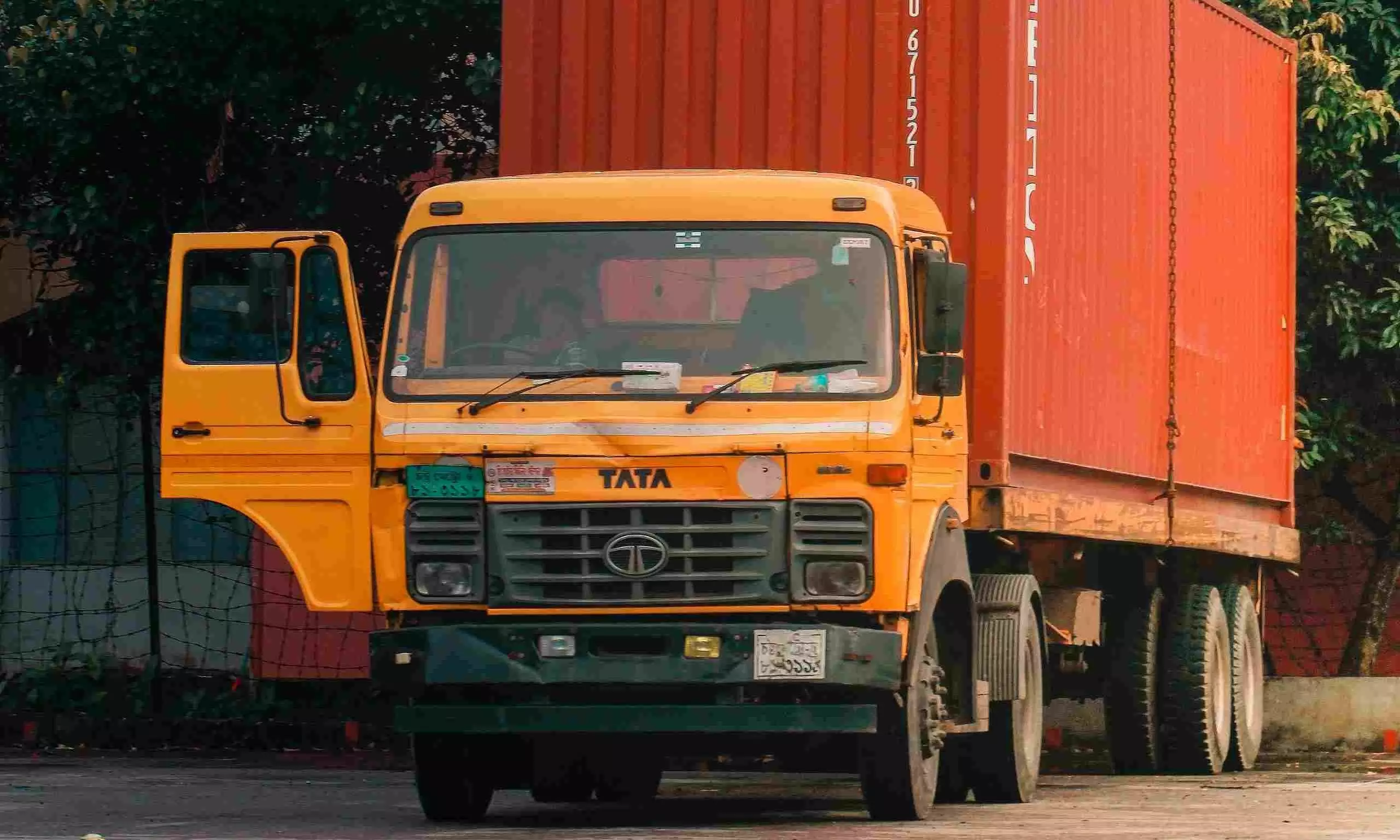Indian trucking community: challenges and opportunities ahead

Riding the wave of a strong post-pandemic recovery, India has now edged the UK out and entered the exclusive club of top 5 economies in the world. This is a perfect precursor to the country becoming a $5 trillion GDP nation, a goal which we are expected to reach within the next few years. However, to achieve this objective, there is a need to put the domestic logistics industry into top gear. This is because logistics is not just needed to transport goods but also create employment. And in today's world of just-in-time inventory and 10-minute deliveries, the role of logistics has become even more pronounced. India is quite distinct in terms of its logistics operations which have created both challenges and opportunities for the Indian trucking community. However, before delving into this aspect, let's compare the Indian and global logistics markets.
India's standing in the global logistics arena
Global logistics powerhouses have the advantage of being highly organized, technology-driven, and economical operations. However, the international logistics market is facing strong headwinds as well. There is a sharp rise in fuel costs in the wake of the Russia-Ukraine war and longer delivery timelines or supply chain disruptions have become more common in the post-pandemic times. The current challenges are threatening to undo their competitive advantage. The Indian logistics sector on the other hand has often been criticized for its small-scale and unorganized operational model. The operational costs are anywhere between 50 to 100 percent higher than the leading global markets. There is very low technology penetration in the operational processes which leads to several other efficiency challenges. However, things have been changing rapidly in recent years.
There was always a massive market size to cater to. Currently standing at $250 billion, the logistics sector is expected to grow to $380 billion at a CAGR of 10-12 percent by FY25, further cementing India's competitive advantage in comparison to the global scenario. And now with India's emergence as a global IT power, a positive impact is being made on the trucking business too. Driven by top-notch talent, several trucking marketplaces, 3P logistics companies, and logistics SaaS solution providers have emerged. Alongside rapid infrastructure development and digital connectivity, this new wave of Indian trucking platforms and services is swiftly closing the gap. Using the most advanced AI, machine learning algorithms, data analytics, GPS and IoT etc., the trucking marketplaces are changing the way truckers live and work in India.
Tech-driven transformation
Streamlining and speeding up operations
Typically, a trucker delivers a load at one destination and waits until the driver finds another load through his personal network. Depending on the route, season, vehicle type and various other factors, this wait could be anywhere from a few hours to a few days. Online trucking marketplaces have been able to bring together lakhs of transporters, shippers and truckers on a 24x7 smartphone-app platform which enables direct business engagement with verified users. Thus, it is possible to even pre-book a load from a destination towards which the vehicle is heading. Truckers using such platforms have been able to increase their monthly operational days to as high as 25-26.
Vehicle-load matching
The second challenge faced by the Indian trucking community is around ideal vehicle load matching. If one has a 12-tonne vehicle and gets a load of only 9 tonnes or less, there is wasted capacity as the trucker will only be paid for what they carry. On the other hand, if the shipper has to dispatch 12 tonnes and finds a 9-tonne truck then they will have to either find another vehicle or hire a smaller truck for two trips which would again lead to additional expenditure for the shipper. The AI technology used by trucking platforms is capable of precise matches which leads to faster and automated vehicle-load matching without even a single phone call. Thus, time is reduced and wastage is eliminated.
Route optimization
GPS-based real-time navigational aid enables truckers to find optimum routes for their journeys and avoid traffic jams/blockades etc. These tools enable incremental savings that can help save billions of rupees and millions of metric tonnes of emissions as well.
Benefits for truckers
The most encouraging aspect of technology-driven logistics marketplaces has been that they have not only made operations highly streamlined and efficient but are also helping bring about a change in the lives of truckers. Online medical consultations and various other benefits such as GPS, spare parts purchase and insurance are also being offered by leading trucking platforms for their benefit.
The road ahead
This is just the beginning of digitally-driven trucking in India. The Prime Minister has recently unveiled the National Logistics Policy, which is going to be a game-changer for the Indian logistics industry. Alongside focusing on bringing down logistics costs to single digits, the policy aims to synchronize seven different ministries to make logistics development seamless and faster. There are several digitally-driven initiatives envisaged in the policy including the Unified Logistics Interface Platform (ULIP) that will bring all stakeholders on a single platform, and Logistics Ease Across Different States (LEADS)etc which will streamline cargo movement and make it hassle-free for the truckers.
As the Indian trucking community races to meet its global competitors at an even operating platform, there is no doubt that incredible value will be unlocked. It is about time to 'blow the horn and say All Ok' for the goods carriers in India.
The views and opinions expressed in this article are those of the author and do not necessarily reflect the views of Indian Transport & Logistics News.

Karan Shaha
He is the chief executive officer and co-founder of the online transport market platform Vahak.


